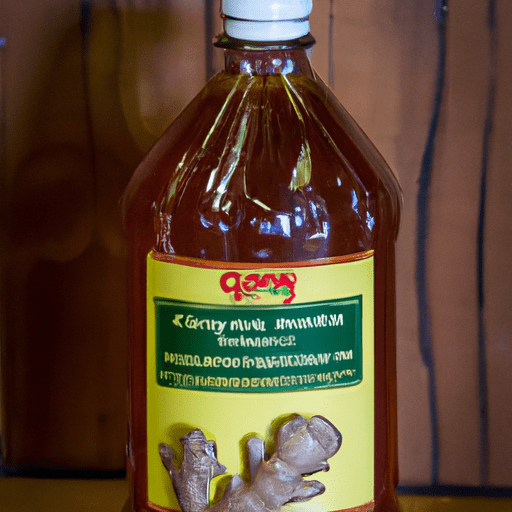Exploring the Magic of Bottled Ginger: A Flavorful Addition to Your Culinary Repertoire
Ginger, with its distinctive aroma and fiery flavor, has long been a staple in kitchens around the world. Used in various forms, from fresh root to powdered spice, ginger adds a delightful kick to numerous dishes. One such form that has gained popularity in recent years is bottled ginger. In this blog post, we will delve into the wonderful world of bottled ginger, exploring its taste, versatile uses in cooking, nutritional attributes, and intriguing history.
The Taste Sensation of Bottled Ginger
Bottled ginger boasts a unique flavor profile that can be described as both sharp and subtly sweet. This versatile ingredient combines the vibrant heat of fresh ginger with a tangy, slightly acidic note, making it a fantastic addition to a wide range of culinary creations. It offers a more concentrated and intense ginger flavor compared to its fresh counterpart, adding complexity and depth to dishes with ease.
Unleashing the Culinary Potential of Bottled Ginger
Bottled ginger opens a world of possibilities in your kitchen, offering an array of delectable culinary applications. Here are a few common uses that will tantalize your taste buds:
Stir-fries and Sautes: Add a spoonful or two of bottled ginger to your stir-fried vegetables, meats, or tofu to impart a zesty kick and elevate the overall flavor profile of your dish.
Marinades and Dressings: Create enticing marinades and dressings by incorporating bottled ginger. Its piquant nature harmonizes beautifully with soy sauce, garlic, and citrus, resulting in vibrant and flavorful coatings for your meats and salads.
Asian-inspired Soups: Enhance the authenticity of Asian-inspired soups, such as ramen or pho, by adding a dash of bottled ginger. Its nuanced flavor brings a touch of warmth and complexity to these comforting bowls of goodness.
Baked Goods: Surprise your taste buds by adding bottled ginger to various baked goods, including cakes, muffins, and cookies. It lends a delightful tang and aromatic touch, perfectly complementing sweet treats.
Nutritional Benefits of Bottled Ginger
Apart from its tantalizing taste, bottled ginger also brings several health benefits to the table. Here are a few noteworthy nutritional aspects of this fantastic ingredient:
Digestive Aid: Ginger is renowned for its potential to aid digestion and alleviate gastrointestinal discomfort. Bottled ginger, with its concentrated form, packs a punch of digestive benefits, helping soothe upset stomachs and reducing nausea.
Anti-Inflammatory Properties: Ginger contains gingerol, an active compound known for its anti-inflammatory properties. Regular consumption of bottled ginger may aid in reducing inflammation in the body and promoting overall well-being.
Boosts Immune System: Packed with antioxidants, bottled ginger can help strengthen the immune system and protect the body against harmful free radicals.
A Dash of History and Fun Facts
Ginger has a rich and fascinating history that dates back centuries. Here are a couple of interesting historical facts about this marvelous ingredient:
Ancient Spice Route: Ginger was highly valued during ancient times and was one of the cherished spices traded along the historic spice route. Its exotic appeal and medicinal properties made it a sought-after commodity.
Culinary and Medicinal Uses: Ginger has been a prominent ingredient in traditional medicine systems, such as Ayurveda, Chinese medicine, and the folk remedies of various cultures worldwide. Its versatile nature lends itself to both culinary and medicinal applications.
So, next time you’re in the mood for a little culinary adventure or seeking a healthful ingredient to include in your recipes, consider reaching for a bottle of ginger. Its sensational taste, versatile uses, and beneficial properties make bottled ginger a worthy addition to any well-stocked kitchen. Unleash your creativity, experiment, and enjoy the magic of bottled ginger in your cooking endeavors!
Origin: Ginger (Zingiber officinale) is a flowering plant native to Southeast Asia. It is believed to have originated in the Indian subcontinent and later spread to other regions such as China and West Africa.
Common uses: Bottled ginger refers to preserved ginger that has been submerged in a liquid, usually a combination of water, sugar, and vinegar. It is commonly used as a condiment or ingredient in various cuisines. Bottled ginger slices are often added to dishes to impart a tangy and spicy flavor, and they can also be used as a garnish or in pickling recipes.
Nutritional benefits: Ginger is widely recognized for its potential health benefits. It contains various bioactive compounds such as gingerol, which is responsible for its distinct flavor and potential medicinal properties. Ginger is a good source of dietary fiber, vitamin C, magnesium, potassium, and manganese. It is also known for its anti-inflammatory and digestive properties, and it has been traditionally used to help alleviate nausea.
Unique properties and historical significance: Ginger has a long history of use in traditional medicine. It was highly prized in ancient China and India for its medicinal properties and was also used in Ayurvedic medicine. It became a popular spice in Europe during the Middle Ages and played a significant role in the spice trade. Apart from its culinary and medicinal uses, ginger has cultural and religious significance in many Asian countries. It is often used in religious ceremonies and as a symbol of goodwill and prosperity. In Chinese culture, ginger is associated with the lunar New Year and is believed to ward off evil spirits.




Use the share button below if you liked it.
It makes me smile, when I see it.